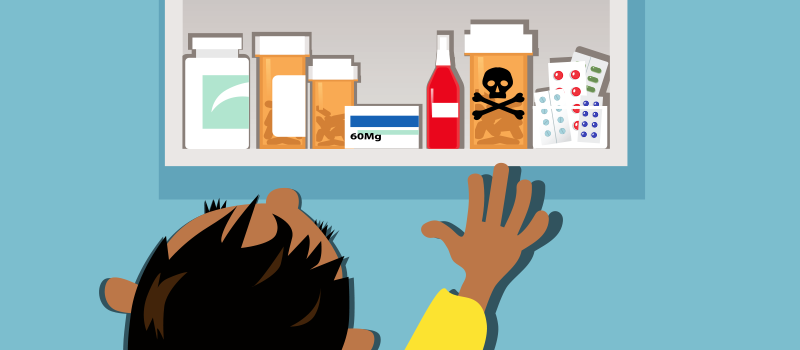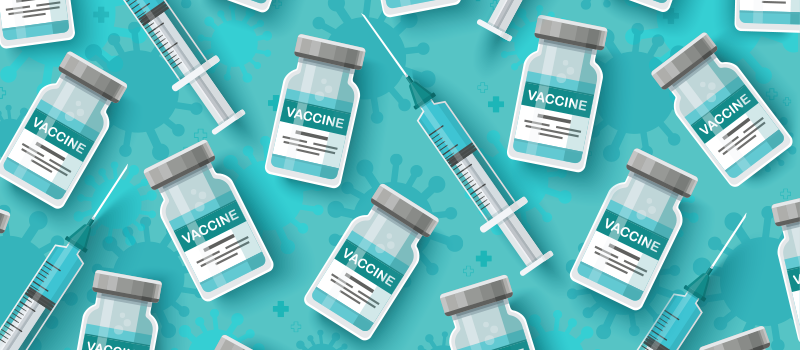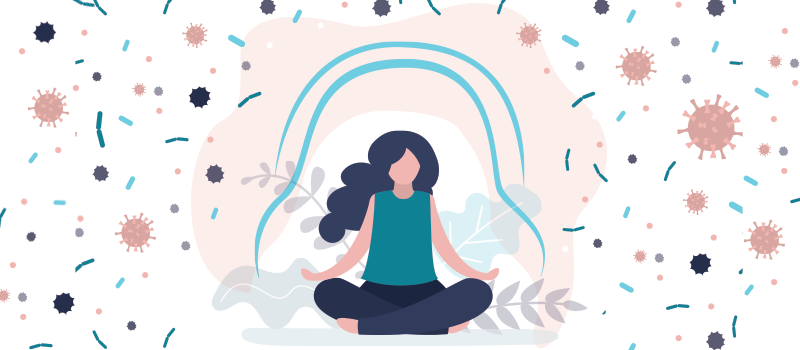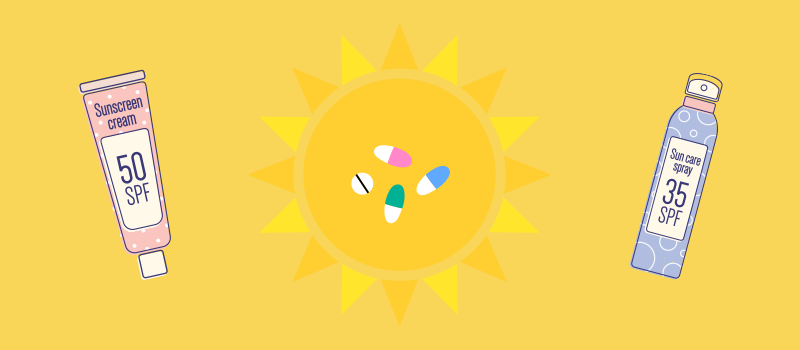What’s the Buzz
The Bee Healthy Blog
RSV Vaccine: What You Need to Know

Key Takeaways
-
There are two RSV vaccines that are approved to prevent RSV: Arexvy and Abrysvo. There are also two RSV vaccines used in high-risk infants and young children: Synagis and Beyfortus.
-
RSV vaccines provide immunity for at least two RSV seasons. The current recommendation is for a single dose of the RSV vaccine with the understanding that it will provide immunity in the second RSV season as well.
-
The most common side effects of the RSV vaccine are fatigue, injection site pain, muscle and joint pain, headache, nausea, and diarrhea.
Respiratory syncytial virus (RSV) is a common virus that affects the lungs and airway passages. People of all ages can get RSV, but it is common in children under 2 years of age and older adults above 60 years of age. According to the Centers for Disease Control and Prevention (CDC), RSV results in 60,000-160,000 hospitalizations and claims 6,000-10,000 lives each year in people 65 years of age and older. Vaccines are available to prevent respiratory syncytial virus infection.
Please continue reading to learn more about RSV vaccines.
What is respiratory syncytial virus (RSV)?
Respiratory syncytial virus (RSV) is a highly contagious infection caused by a common respiratory virus that affects the lungs and small airway passages. RSV season typically starts in the fall and peaks in the winter months. It is very common, such that most children have been infected by the time they are 2 years of age. But people of all ages can get an RSV infection.
The virus can cause life-threatening lower respiratory tract disease (pneumonia and bronchiolitis) in young infants and older adults with other health problems. Premature infants and older adults with underlying medical conditions, such as weakened immune systems or heart or lung disease, are at an especially high risk of severe RSV. RSV vaccination can help to prevent life-threatening lower respiratory tract disease.
What are the symptoms of severe RSV disease?
Signs and symptoms of a mild RSV infection include runny nose, sneezing, nasal congestion, sore throat, dry cough, low-grade fever, and headache.
Severe infection can cause signs and symptoms such as high fever, severe cough, wheezing, difficulty breathing, and cyanosis (a bluish tinge to the skin due to poor oxygenation).
In young babies, severe disease can cause cough, shallow and rapid breathing, difficulty breathing, lethargy, irritability, and poor feeding.
Is RSV in adults serious?
RSV can be serious in older adults (60 years of age and above). People with underlying health conditions such as lung problems or heart disease, those who are severely immunocompromised, and older adults living in long-term care facilities are at an increased risk for severe RSV disease.
At what age is RSV not an issue?
RSV is usually not an issue in healthy adults and older children above 2 years of age. In these age groups, the virus usually causes mild cold-like symptoms. These mild symptoms rarely require medical care and get better with self-care measures. Young children below 2 years of age and older adults above 60 years of age are at the highest risk for severe RSV.
Is there a vaccine for RSV?
There are two RSV vaccines that are approved to prevent RSV-associated lower respiratory tract disease in people 60 years of age and older: Arexvy (RSVPreF3 by GSK) and Abrysvo (RSVPreF by Pfizer). Both of these RSV vaccines are given as a single dose and can be administered at the same time as other vaccines.
On August 21, 2023, the respiratory syncytial virus (RSV) vaccine Abrysvo, previously approved to be used in adults 60 years and older, now has additional approval as a maternal vaccine that is given at 32-36 weeks gestation to pregnant people during RSV season, specifically between September and January, to protect infants from birth to 6 months of age.
In addition, there are two RSV monoclonal antibody products that are used in high-risk infants and young children to reduce the risk of severe RSV disease: palivizumab (Synagis) and nirsevimab (Beyfortus).
The major difference between Synagis and Beyfortus is their dosing schedule. Synagis is given by intramuscular injection every month during RSV season, which is generally 5 shots. However, only one dose of Beyfortus is recommended for each RSV season.
Who should get RSV vaccines?
As mentioned, there are two U.S. Food and Drug Administration (FDA) approved RSV vaccines, the RSVPreF3 (Arexvy) and RSVpreF (Abrysvo).
The CDC recommends adults aged 60 years and older receive a single dose of RSV vaccine based on shared clinical decision-making. This means you should have a conversation with your healthcare provider to determine if RSV vaccination will benefit you.
Unlike the flu vaccine, which is recommended for everyone, the RSV vaccine is an individual decision based on your health status, risk of severe RSV disease, your provider’s recommendation, and your preferences.
Your healthcare provider may recommend that you get the RSV vaccine if you are over 60 years of age and have risk factors for severe RSV disease, such as chronic heart or lung disease, liver disease, kidney disease, neurological or neuromuscular disorders, hematologic disorders, diabetes, or a weakened immune system. The RSV vaccine is also recommended for people who are frail, of advanced age, or living in nursing homes or long-term care facilities.
Pregnant people may receive the RSV maternal vaccine (Abrysvo) at 32-36 weeks gestation to protect the baby after birth.
Is the RSV vaccine effective?
Vaccines can lower the risk of severe infection. People who received Arexvy had an approximately 83% lower risk of lower respiratory tract disease (LRTD) associated with RSV and a 94% lower risk of severe disease.
This is an ongoing randomized placebo-controlled study in people 60 years of age and older. People who are part of the study have been enrolled for three RSV seasons to evaluate the safety and efficacy of Arexvy and assess the need for repeat vaccinations.
The FDA approved Arexvy after data from one dose and the first RSV season became available. Around 25,000 people were enrolled in the study, half of whom received Arexvy and the other half a placebo.
When to get the RSV vaccine?
RSV vaccination should ideally take place before the fall and winter RSV season.
How long does RSV immunity last?
It appears that RSV vaccines provide immunity for at least two RSV seasons. The current recommendation is for a single dose of the RSV vaccine with the understanding that it will provide immunity in the second RSV season as well.
Clinical trials are ongoing, and their results will determine if older adults can benefit from two vaccines or three vaccines in subsequent seasons.
What are the side effects and risks of the RSV vaccine?
The most common side effects reported by people who received Arexvy RSV vaccine are fatigue, injection site pain, muscle pain, joint pain, nausea, diarrhea, and headache.
There are also reports of more serious adverse reactions in a small number of people, including disseminated encephalomyelitis (in which there is nervous system inflammation) or Guillain-Barré syndrome (in which the immune system attacks nerve cells, causing muscle weakness and paralysis).
Save on Your Vaccinations with BuzzRx!
Manage your vaccination costs with BuzzRx coupons. Here are direct links to substantial savings for each medication:
-
Arexvy Coupon: The retail price is about $337.99, but with BuzzRx, you might pay as low as $283.92.
-
Abrysvo Coupon: The retail price is about $450.74, but with BuzzRx, you might pay as low as $298.68.
-
Synagis Coupon: With BuzzRx coupons, pay as low as $3,391.31.
-
Beyfortus Coupon: Pay as low as $495.48 when you use your BuzzRx coupon.
Remember, these coupons are widely accepted at over 60,000 pharmacies, including major chains like CVS, Walgreens, and Rite Aid. Just present your coupon at the pharmacy to ensure you're getting the best possible price.
References:












SOCIAL